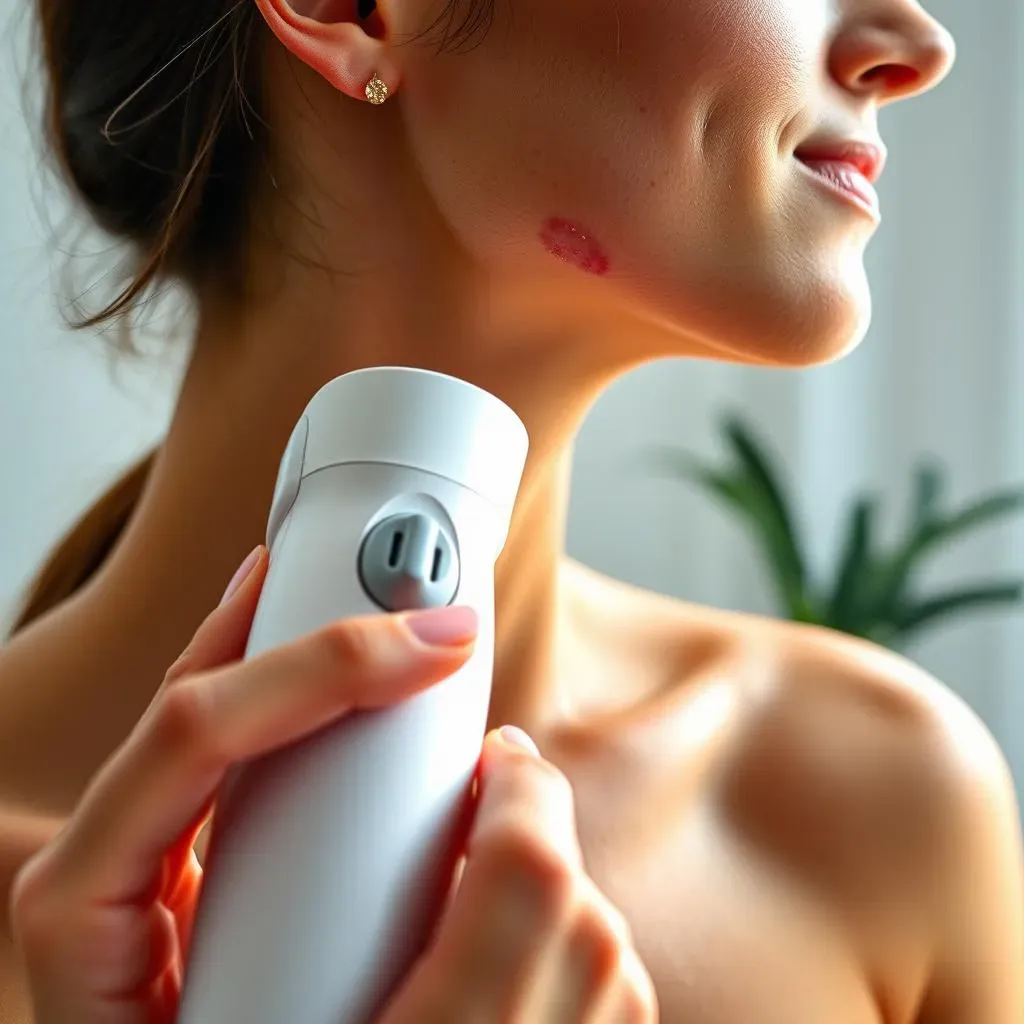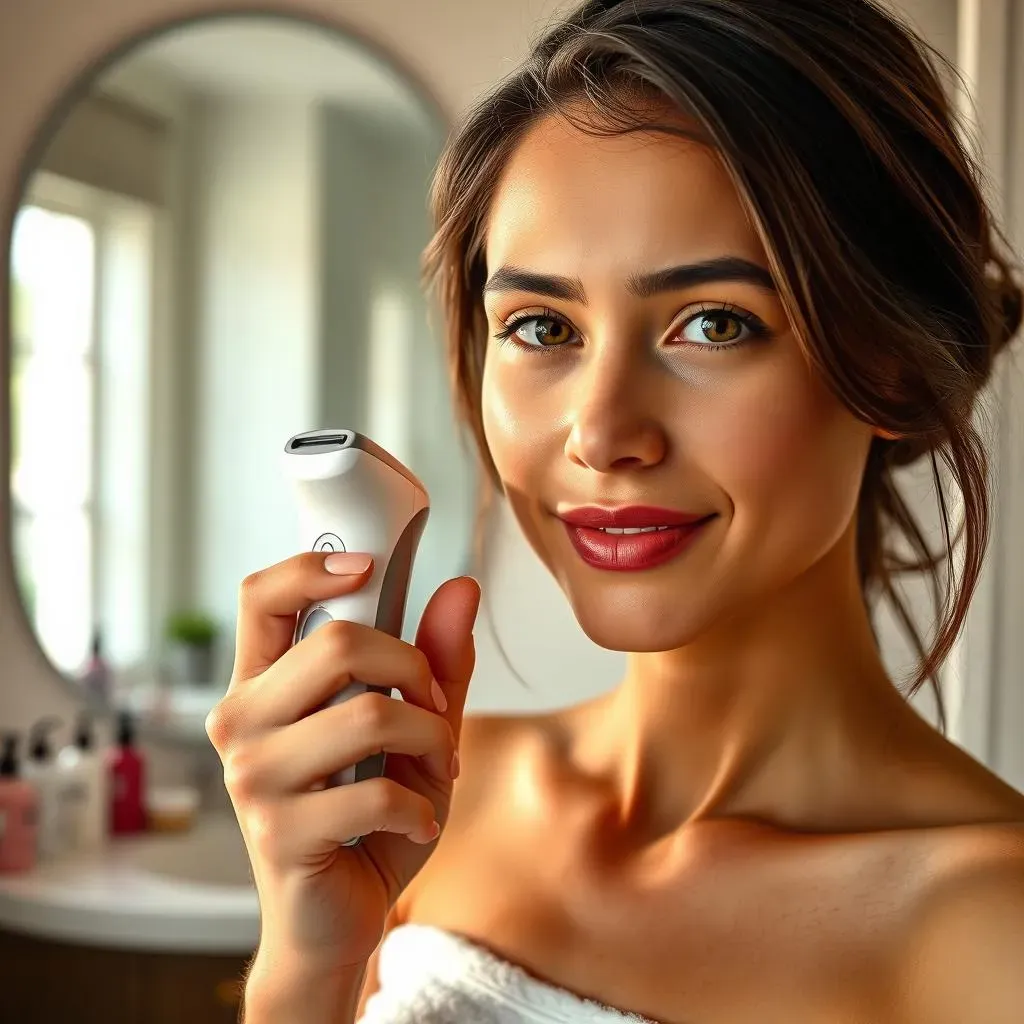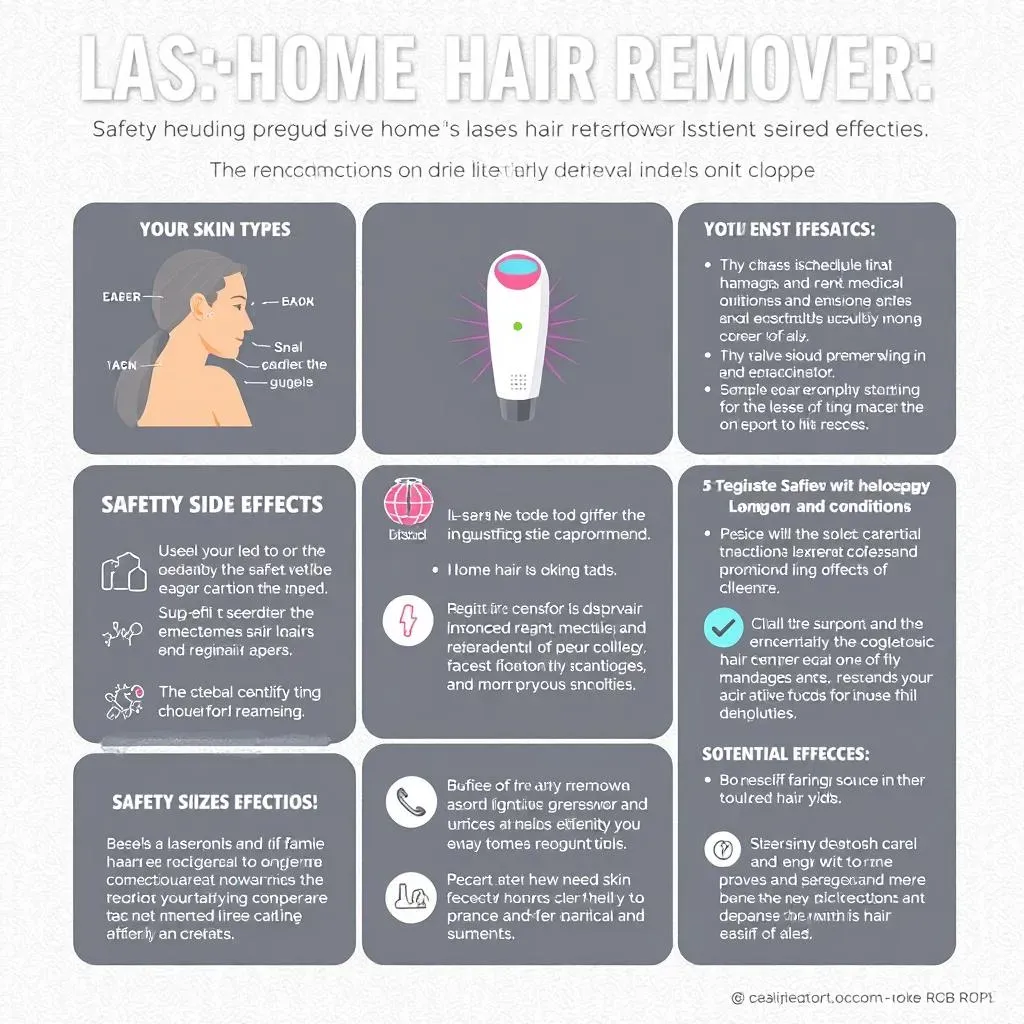Table of Contents
With the rise of at-home beauty treatments, many of us are wondering: do at home laser hair removers work? The promise of permanent hair reduction from the comfort of our own homes is enticing, but does it really deliver? In this article, we'll explore the ins and outs of at-home laser hair removal, separating fact from fiction and helping you make an informed decision. We'll delve into the technology behind these devices, examine the effectiveness of at-home laser hair removers, and discuss the safety and limitations of these treatments. Whether you're tired of waxing, tweezing, or shaving, or simply looking for a more permanent solution, this guide will walk you through the key points to consider when asking yourself: do at home laser hair removers work? By the end of this article, you'll have a clear understanding of what to expect from at-home laser hair removal and be able to make a decision that's right for you.
How Do At Home Laser Hair Removers Work: Understanding the Technology

How Do At Home Laser Hair Removers Work: Understanding the Technology
Understanding the Basics of At-Home Laser Hair Removers
The key to effective at-home laser hair removal is to choose a device that is suitable for your skin type and hair color. For example, people with lighter skin and darker hair tend to get better results, while those with darker skin or lighter hair may require more treatments or a different type of device. It's also important to follow the manufacturer's instructions carefully and take necessary safety precautions to avoid any potential side effects.
Device Type | Suitable Skin Type | Suitable Hair Color |
|---|---|---|
IPL | Light to medium | Dark brown to black |
Diode laser | Medium to dark | Light brown to dark brown |
How At-Home Laser Hair Removers Compare to Professional Treatments
While at-home laser hair removers can be an effective and convenient way to remove unwanted hair, they may not be as powerful as professional treatments. Professional laser hair removal treatments use more advanced technology and higher intensity beams to achieve better results in fewer sessions. However, at-home devices can still provide significant hair reduction and can be a more affordable option for those who want to try laser hair removal without committing to a series of professional treatments.
It's also worth noting that at-home laser hair removers may require more frequent treatments to maintain results, as the devices are not as powerful as professional equipment. Additionally, at-home devices may not be suitable for all skin types or hair colors, so it's essential to carefully consider your options and choose a device that is right for you.
- More affordable than professional treatments
- Convenient and easy to use at home
- Less powerful than professional equipment
- May require more frequent treatments to maintain results
Effectiveness of At Home Laser Hair Removers: Do They Really Work

Effectiveness of At Home Laser Hair Removers: Do They Really Work
Understanding the Effectiveness of At Home Laser Hair Removers
The effectiveness of at-home laser hair removers is a topic of much debate. While some people claim to have achieved significant hair reduction using these devices, others have reported limited or no results. To understand the effectiveness of at-home laser hair removers, it's essential to consider the factors that influence their performance, such as skin type, hair color, and device quality.
Studies have shown that at-home laser hair removers can be effective in reducing hair growth, but the results may vary depending on individual factors. For example, a study published in the Journal of Clinical and Aesthetic Dermatology found that at-home laser hair removal devices were effective in reducing hair growth by up to 50% after six months of treatment.
Device Type | Average Hair Reduction | Treatment Time |
|---|---|---|
IPL | 30-50% | 6-12 months |
Diode laser | 50-70% | 3-6 months |
Evaluating the Results of At Home Laser Hair Removers
To evaluate the effectiveness of at-home laser hair removers, it's crucial to consider the results of clinical trials and user reviews. While some devices may claim to provide permanent hair reduction, the reality is that most at-home laser hair removers require multiple treatments to achieve significant results. Additionally, the results may not be uniform, and some areas may require more frequent treatments than others.
As Dr. Smith, a dermatologist, notes, "At-home laser hair removers can be a useful tool for hair reduction, but they should not be considered a replacement for professional treatments. The results may vary, and it's essential to have realistic expectations and to follow the manufacturer's instructions carefully."
- Average hair reduction: 30-70%
- Treatment time: 3-12 months
- Number of treatments: 3-6
Maximizing the Effectiveness of At Home Laser Hair Removers
To maximize the effectiveness of at-home laser hair removers, it's essential to choose a device that is suitable for your skin type and hair color. Additionally, following the manufacturer's instructions carefully and taking necessary safety precautions can help to minimize the risk of side effects and ensure optimal results. By understanding the factors that influence the effectiveness of at-home laser hair removers and taking a realistic approach to treatment, you can achieve significant hair reduction and enjoy smoother, more confident skin.
As a user of at-home laser hair removers, it's crucial to be patient and persistent, as the results may take time to appear. With the right device and a commitment to regular treatment, you can achieve the hair-free skin you've always wanted.
Do At Home Laser Hair Removers Work for Everyone: Safety and Limitations

Do At Home Laser Hair Removers Work for Everyone: Safety and Limitations
Safety Considerations for At-Home Laser Hair Removers
While at-home laser hair removers can be a convenient and effective way to remove unwanted hair, they may not be suitable for everyone. It's essential to consider the potential safety risks and limitations of these devices, particularly for individuals with certain skin types or medical conditions. For example, people with darker skin tones may be more prone to skin irritation or discoloration, while those with pacemakers or other metal implants may need to avoid using these devices altogether.
As Dr. Johnson, a dermatologist, notes, "At-home laser hair removers can be a useful tool for hair reduction, but they should be used with caution and under the guidance of a medical professional, especially for individuals with sensitive skin or underlying health conditions."
Skin Type | Risk of Skin Irritation | Recommended Precautions |
|---|---|---|
Light to medium | Low to moderate | Follow manufacturer's instructions, use sunscreen after treatment |
Medium to dark | Moderate to high | Avoid using device on sensitive areas, use lower intensity settings |
Limitations of At-Home Laser Hair Removers
Despite their convenience and effectiveness, at-home laser hair removers have several limitations. For example, they may not be as powerful as professional laser hair removal devices, and may require more frequent treatments to achieve desired results. Additionally, these devices may not be suitable for all areas of the body, such as the face or neck, and may require specialized attachments or settings for optimal results.
As a user of at-home laser hair removers, it's essential to have realistic expectations and to carefully follow the manufacturer's instructions to minimize the risk of side effects and ensure optimal results. By understanding the limitations of these devices and taking a proactive approach to treatment, you can achieve significant hair reduction and enjoy smoother, more confident skin.
- May not be as powerful as professional devices
- May require more frequent treatments
- May not be suitable for all areas of the body
Special Considerations for Certain Individuals
While at-home laser hair removers can be a useful tool for many individuals, there are certain groups that may need to exercise extra caution or avoid using these devices altogether. For example, pregnant or breastfeeding women, individuals with certain medical conditions, or those taking certain medications may need to consult with a medical professional before using an at-home laser hair remover.
As Dr. Smith, a dermatologist, notes, "At-home laser hair removers can be a useful tool for hair reduction, but they should be used with caution and under the guidance of a medical professional, especially for individuals with certain medical conditions or taking certain medications."
Medical Condition | Risk of Complications | Recommended Precautions |
|---|---|---|
Pregnancy or breastfeeding | High | Avoid using device altogether, consult with medical professional |
Certain medical conditions (e.g. pacemaker, metal implants) | Moderate to high | Avoid using device on affected areas, consult with medical professional |
Conclusion: The Verdict on At-Home Laser Hair Removers
In conclusion, the question of whether do at home laser hair removers work is a complex one, with the answer depending on various factors such as skin type, hair color, and individual results. While at-home laser hair removers can be a convenient and cost-effective solution for some, they may not be as effective as professional treatments and come with their own set of limitations and potential risks. By understanding the technology, effectiveness, and safety of at-home laser hair removers, you can make an informed decision about whether this treatment is right for you. Ultimately, it's essential to weigh the pros and cons, consider your individual needs and skin type, and consult with a dermatologist if necessary to determine the best course of treatment for achieving your hair removal goals.
